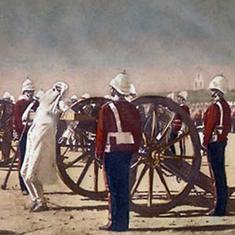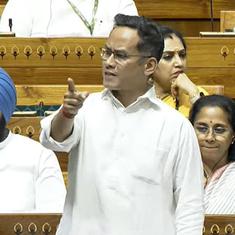Kerala urges Supreme Court to dismiss president’s reference about timelines for bills assent
The state argued that the reference was an attempt to overturn the court’s April ruling in Tamil Nadu government’s case against the governor.

The Kerala government on Monday urged the Supreme Court to return unanswered the presidential reference that seeks clarity on whether courts can impose timelines on the president and the governors to act on bills passed by legislatures, Live Law reported.
In its application, the state argued that the reference was an attempt to reopen and overturn the Supreme Court’s April ruling in Tamil Nadu government’s case against the governor.
On July 22, the court issued notice to the Union government and all states on the reference made by President Droupadi Murmu under Article 143 of the Constitution.
According to Article 143 of the Constitution, the president may refer any question of law or fact of public importance to the Supreme Court for its opinion. The president makes such a reference based on the advice of the Union council of ministers.
In May, referencing 14 questions, Murmu asked whether the actions of governors and the president could be tried in court and whether such timelines could be imposed on them in the absence of any such provision in the law.
The president also said that Article 200 and Article 201 of the Constitution do not prescribe deadlines or specific procedural requirements.
In light of the reference, the Supreme Court set up a Constitution bench comprising Chief Justice BR Gavai, and Justices Surya Kant, Vikram Nath, PS Narasimha and AS Chandurkar.
In its application on Monday, Kerala argued that the reference was based on an “erroneous statement” that Article 200 does not stipulate a time frame for governors to act on bills, Live Law reported.
The state said that 11 out of the 14 questions raised by the president had already been addressed in the Supreme Court’s ruling in the Tamil Nadu case.
It alleged that the reference was a “serious misuse” of Article 143, the legal news outlet reported.
Kerala also said that the Union government had not filed a review or curative petition against the April judgement and had therefore accepted it.
SC’s ruling on Tamil Nadu versus governor
The ruling on April 8 had come on a petition filed by the Tamil Nadu government after Governor RN Ravi did not act on several bills for more than three years before rejecting them and sending some to the president.
In its judgement, the court held that governors must decide on bills within a reasonable time and cannot delay indefinitely under Article 200. Similarly, it said that the president must act within three months under Article 201, and any delay beyond that must be explained and communicated to the state government.
Both sections outline the process of assent to bills by governors and the president.
The judgement had also introduced the concept of “deemed assent” in cases of prolonged inaction by the governor or president, allowing pending bills to be considered approved.









